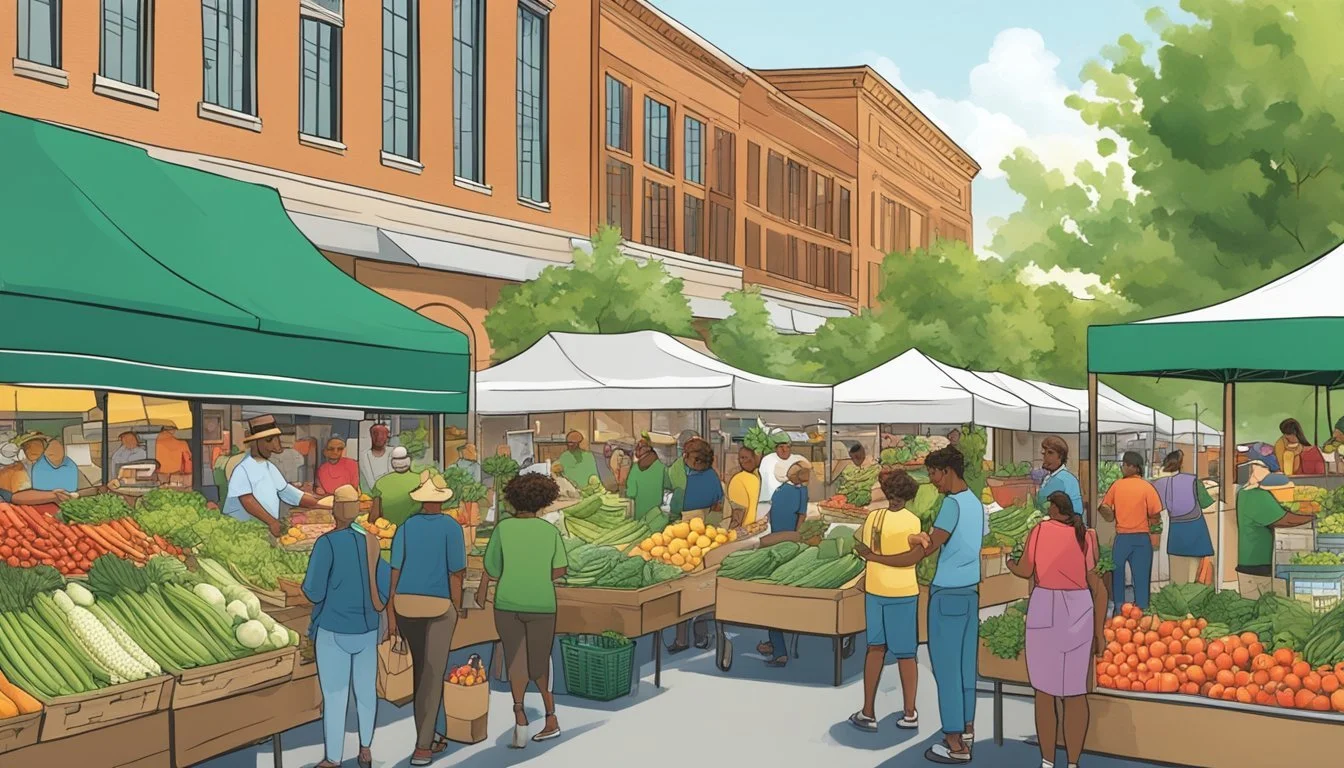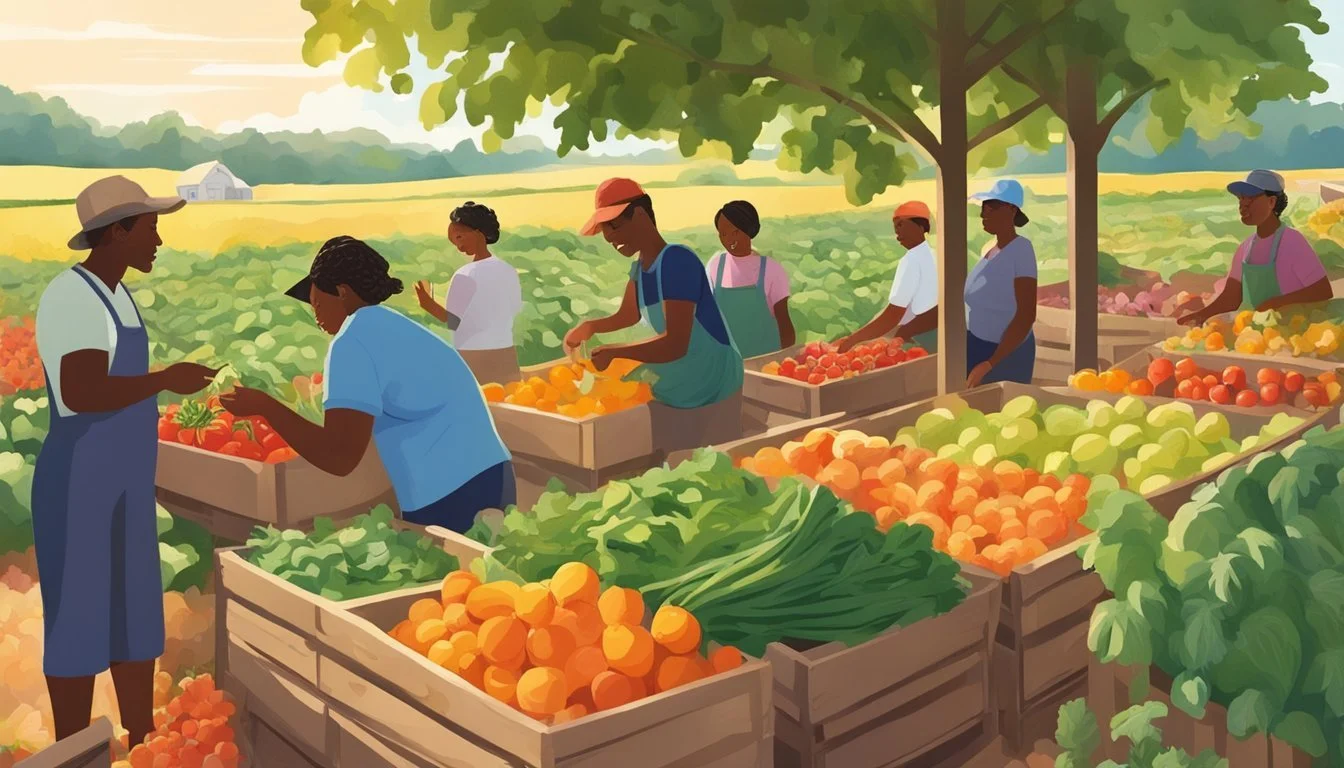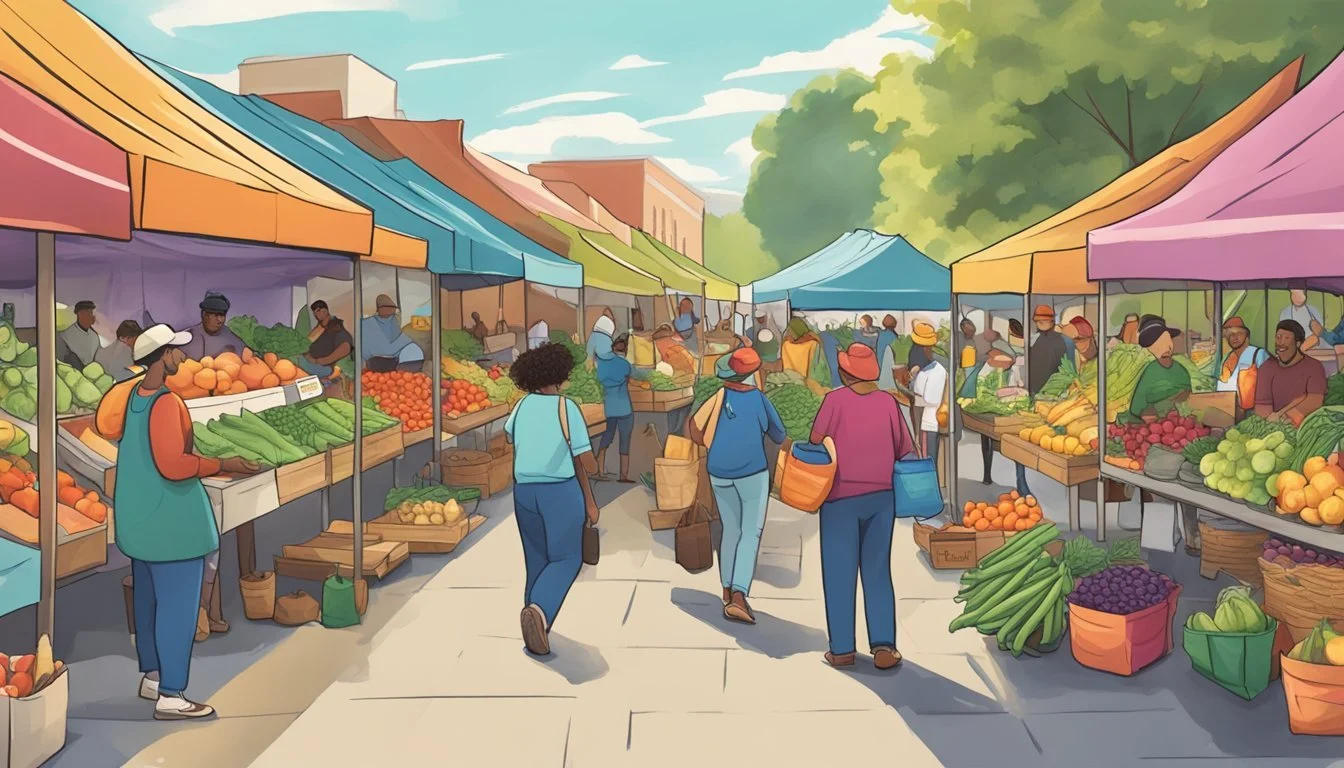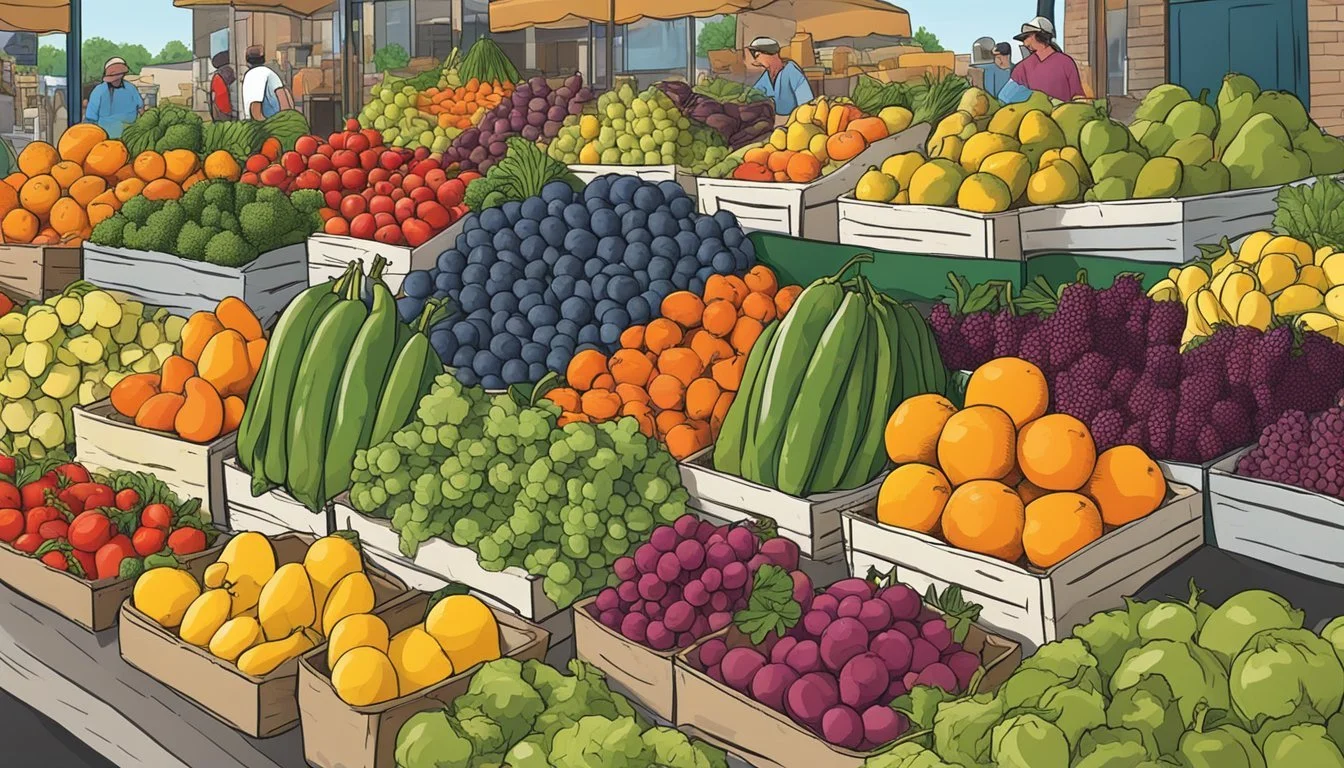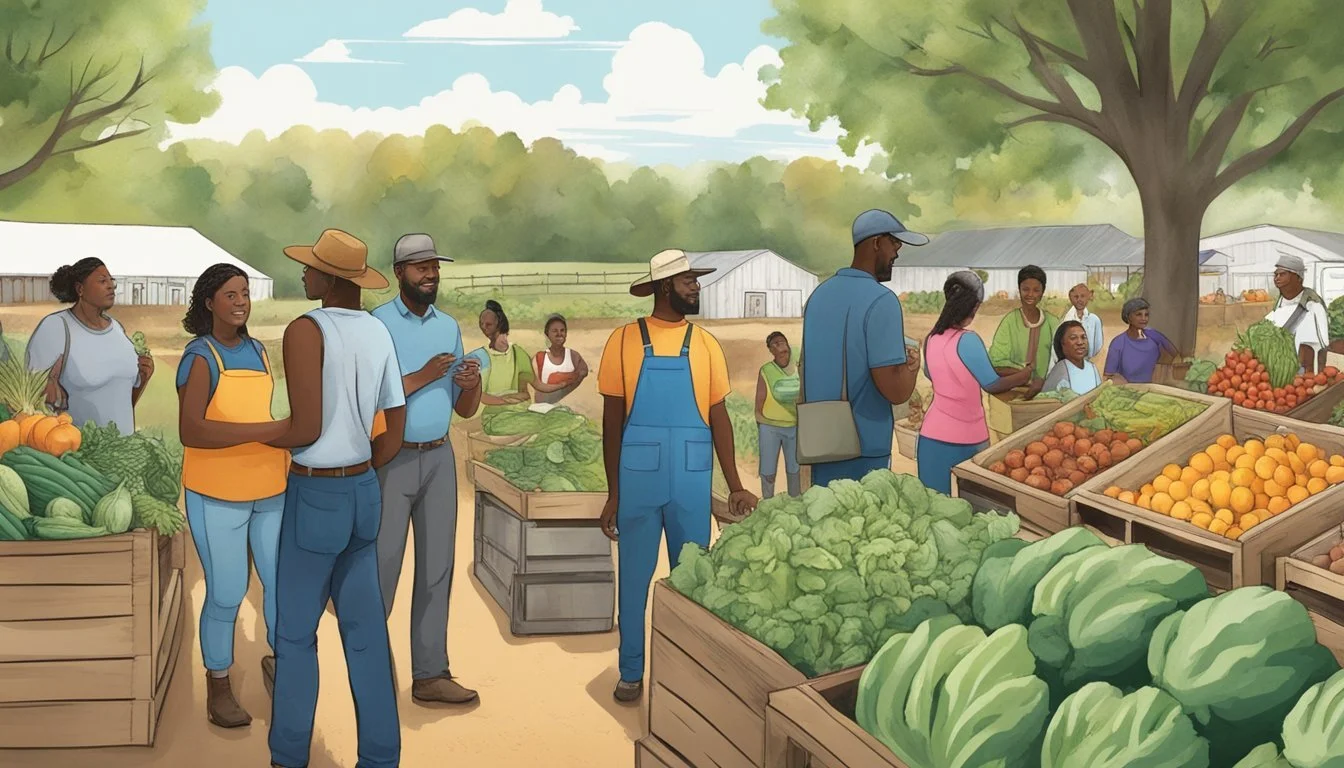Community Supported Agriculture (CSA) in Little Rock, AR
A Guide to Local Farm Shares
Community Supported Agriculture, commonly known as CSA, has taken root in Little Rock, AR, fostering a direct bridge between local farmers and consumers. These programs are designed for members who subscribe to receive a share of the produce throughout the farming season, thus ensuring they get a steady supply of fresh, locally-grown fruits, vegetables, and other farm products. Through CSAs, Little Rock residents can participate in a sustainable food system that supports local farms, strengthens the local economy, and promotes healthier eating habits by providing access to organic and naturally grown foods.
Arkansas farmers, many of whom use organic or Certified Naturally Grown methods, have embraced the CSA model, reflecting their commitment to environmentally friendly farming practices. For example, Foodshed Farms is a farmer-owned cooperative based in Little Rock that supplies fresh, local produce to its members from a collaborative network of farms. Consumers benefit from a diverse array of produce while contributing to the livelihoods of Arkansas farmers. This synergy between consumers and producers exemplifies the mutually supportive spirit of the CSA model.
The city’s various CSA programs vary in their structure, offering different types of shares and pick-up options that cater to the varying needs of members. Single-farm CSAs like Heifer Ranch provide weekly deliveries of organic produce, while multi-farm cooperatives such as Foodshed Farms offer a broader variety of produce options. Some CSAs in the region also extend beyond produce, including local herbs, flowers, and other farm products. The flexibility and diversity within Little Rock's CSA scene demonstrate how the model adapts to local conditions, illustrating a tailored approach to community agriculture.
Understanding CSA
Community Supported Agriculture (CSA) provides an intimate link between local farms and community members in Little Rock, AR, who are seeking fresh, organic, and healthy produce directly from the source.
Definition and Core Concepts
CSA operates on a subscription basis where individuals or families purchase shares of a farm's harvest in advance. These shares typically comprise a box of seasonal produce but may also include other farm products. Members of a CSA, also known as subscribers, support their local farmers upfront, which in turn provides them with regular distributions of the farm's yield throughout the growing season.
Key Features of CSA:
Subscription-Based: Pre-paid shares of produce
Seasonal Produce: Fresh and timely harvests
Direct from Farmer: Reducing transportation and packaging
Support for Local Farmers: Investment in local agriculture
Benefits of Joining a CSA
Joining a CSA in Little Rock, AR, offers numerous benefits.
Health and Quality: Subscribers receive nutritious, often organic or Certified Naturally Grown produce.
Economic Advantages: Costs for both the farmer and consumer are typically reduced as it eliminates middlemen.
Understanding and Appreciation: Shareholders gain insight into farming processes, seasonality, and sustainably produced food.
Community Engagement: Establishing a sense of community among members and farmers, fostering a shared commitment to local agriculture.
By becoming part of a CSA, individuals directly contribute to the economic stability of farmers and enjoy the satisfaction of consuming high-quality, local produce.
CSA Operations in Little Rock
Community Supported Agriculture (CSA) in Little Rock supports a thriving relationship between local consumers and farmers, ensuring a steady supply of fresh produce throughout various seasons.
Key Players
In Little Rock, notable entities like Foodshed Farms and New South Produce Cooperative spearhead the CSA movement. Both are farmer-owned cooperatives that unite multiple farms to provide a variety of produce to their members. North Pulaski Farms is another essential contributor, offering an assortment of Certified Organic and Certified Naturally Grown foods.
Foodshed Farms
Farmer-owned cooperative
Offers multi-farm CSA shares
Certified Organic and Naturally Grown farms
New South Produce Cooperative
Cooperative of local farmers
Focuses on sustainable, local produce
CSA shares available to the community
North Pulaski Farms
Provides Certified Organic produce
Participates in local CSA initiatives
Sustains eco-conscious agriculture practices
Seasonality and Availability
The availability of CSA shares in Little Rock largely depends on the seasonality of the crops. The prime months for CSA participation range from April to November. During this period, local weather conditions are conducive to growing an array of seasonal produce. Consumers can expect to start receiving leafy greens and root vegetables in May, various fruits and vegetables during the peak months of July and October, with the season often extending through November.
Spring (Starting April)
Early planting begins
First CSA shares often include leafy greens
Summer (May to July)
Variety of fruits and vegetables become available
Peak time for many popular crops
Fall (October to November)
Harvest continues with robust offerings
End of the main CSA season before colder weather
Local CSAs in Little Rock are attentive to the rhythms of the climate and soil, which helps them provide fresh, locally grown produce to their members, fostering community ties and supporting sustainable agriculture.
CSA Membership
Community Supported Agriculture (CSA) memberships in Little Rock, Arkansas, offer individuals a direct way to support local farmers and receive fresh, organically grown produce. Members subscribe to a season's worth of food and are integral to promoting sustainable farming practices within the community.
How to Join
To become a member of a CSA in Little Rock, individuals should:
Find a CSA: Visit platforms like LocalHarvest at info@localharvest.org or contact local farms directly.
Choose Your Share: Decide on the type of subscription that fits your needs, typically involving weekly or bi-weekly boxes of vegetables and sometimes other farm products.
Sign Up: Complete the membership form which includes choosing a pick-up location from the farm’s listed options.
Cost and Payment Options
Membership costs and payment methods may vary among CSAs but generally follow a seasonal subscription model.
Payment Structure: CSA memberships usually require upfront payment for the season to help cover the initial production costs of the farm.
Options for Payment: Most farms accept various forms of payment, including cash, checks, or online transactions.
Members investing in CSA memberships are ensuring their access to high-quality, seasonal food while contributing to a model that values the health of the consumer, the land, and the local economy.
CSA Products
Community Supported Agriculture in Little Rock offers a bounty of farm-fresh products directly connecting consumers with the fruits of Arkansas's soil.
Produce and Specialty Items
Farms participating in CSA programs prioritize a wide variety of fresh produce which commonly includes vegetables like beans, broccoli, and peas. These programs often extend beyond vegetables to offer fruit selections such as blackberries, strawberries, and watermelons—truly capturing Arkansas's diverse growing seasons. In addition to produce, many CSAs provide specialty items like honey, eggs, meat, cheese, and even flowers, adding to the richness of the offerings.
Variety and Selection
Consumers can expect a diverse and rotating selection of seasonal food. The product assortment is carefully curated based on what is fresh and local, ensuring that CSA shares represent what is currently in harvest. For instance, one might find pumpkin in autumn shares or crisp veggies in spring crates. The nature of CSA ensures the selection is seasonal, encouraging members to enjoy and cook with produce at its peak of freshness.
Supporting Local Agriculture
In Little Rock, AR, residents support local agriculture through the participation in Community Supported Agriculture (CSA) programs. These initiatives strengthen the relationship between consumers and farmers, fostering a sense of community and a commitment to sustainable farming practices.
Environmental Impact
CSA programs in Little Rock promote sustainable farming practices that benefit the environment. By choosing local farms that adopt organic methods, consumers help reduce the reliance on pesticides which can harm local ecosystems. Sustainable farming practices in the region focus on soil health and biodiversity, which lead to a more balanced ecosystem.
Organic Certification: Many CSA farms maintain certifications that ensure they follow strict guidelines avoiding harmful chemicals.
Food Miles: A reduced carbon footprint is achieved as produce travels shorter distances from farm to table.
Economic Benefits
The economic benefits of supporting local Little Rock farmers through CSAs are substantial.
Direct Support: Money spent on CSAs goes straight to farmers, helping to sustain their livelihoods.
Local Economy: Dollars stay within the local community, bolstering the overall economy of Little Rock.
Farmers markets complement the CSA model by providing additional venues for consumers to buy local products and engage directly with those who grow their food, thereby strengthening the local-food movement.
Additional Offerings
Community Supported Agriculture (CSA) programs in Little Rock are more than a source for fresh local produce; they offer unique experiences that strengthen the bond between consumers and producers.
Agritourism and Events
Foodshed Farms takes the CSA model a step further by integrating agritourism into their program. Members can participate in specially arranged farm tours and seasonal events which showcase the farming process and foster a deeper understanding of where their food comes from. These events are designed not only to entertain but also to educate patrons on the importance of sustainable agriculture in Arkansas.
Education and Community Outreach
CSAs like Foodshed Farms believe in the value of education, providing community outreach programs that emphasize the significance of local food systems. They offer cooking demonstrations to help members utilize their CSA produce more effectively, alongside tips and recipes that make seasonal eating a delightful experience. Through these educational efforts, the CSA reinforces the relationship between farmer and consumer, illustrating the principles of community supported agriculture with each interaction.
Practical Considerations
When joining a CSA in Little Rock, AR, members should be aware of how they will obtain their shares and the aspects of preparing seasonal foods. These practical considerations are crucial for ensuring satisfaction with their CSA experience.
Picking Up Your Share
Members typically need to pick up their shares at designated locations. Foodshed Farms, for example, operates in Little Rock and offers various pickup points for convenience. CSA members may find pick-up locations available in:
Fayetteville
Springdale
Bentonville
Rogers
Some CSAs might also provide delivery options for an additional charge, enhancing the accessibility of fresh produce. It is important that members check with their CSA for the exact pick-up times and locations or the terms of delivery services.
Preparing Seasonal Foods
Upon receiving their share of the harvest, CSA members often encounter a diverse array of seasonal foods. Cooking with these ingredients can be both rewarding and challenging. Here are a few cooking tips to help in meal preparation:
Familiarize Yourself: Understand what is to come in your CSA share by checking seasonal charts or communicating with the farmers.
Recipe Research: Search platforms like LocalHarvest for recipes tailored to seasonal ingredients.
Kitchen Preparedness: Stock your kitchen with basic cooking supplies and spices that complement a wide range of vegetables and fruits.
Flexibility in Cooking: Be open to substituting ingredients in recipes based on what is currently in season.
Engaging with your community supported agriculture not only bolsters local farms but also enhances your culinary skills with fresh, local, and seasonal produce.


